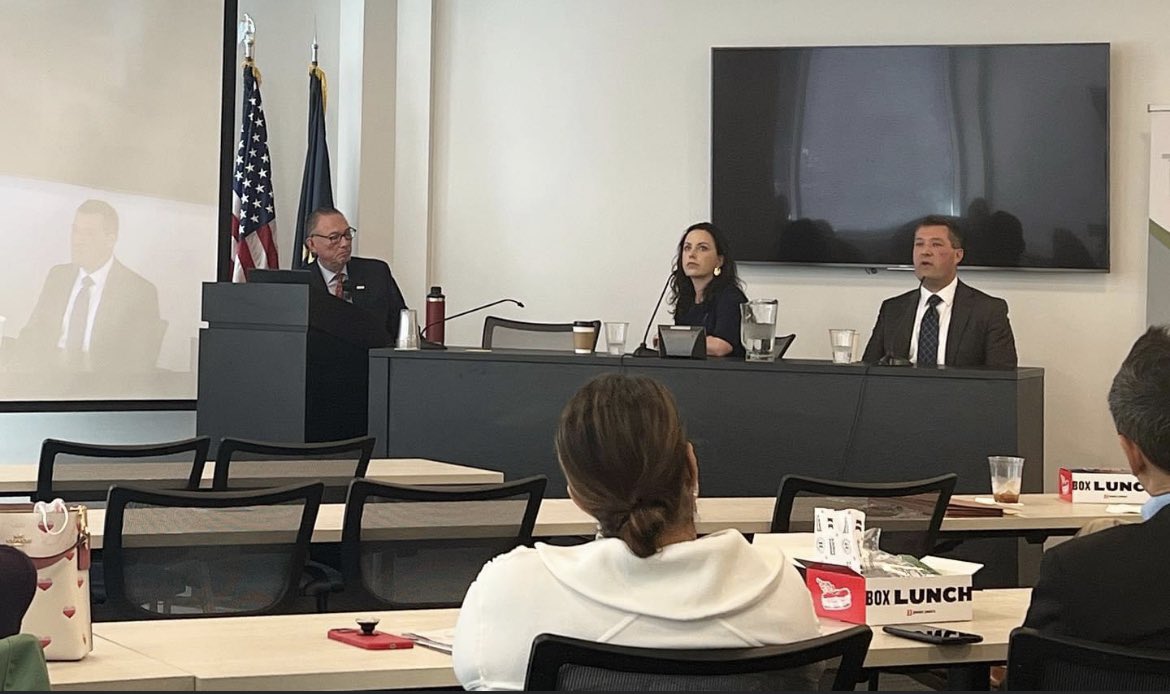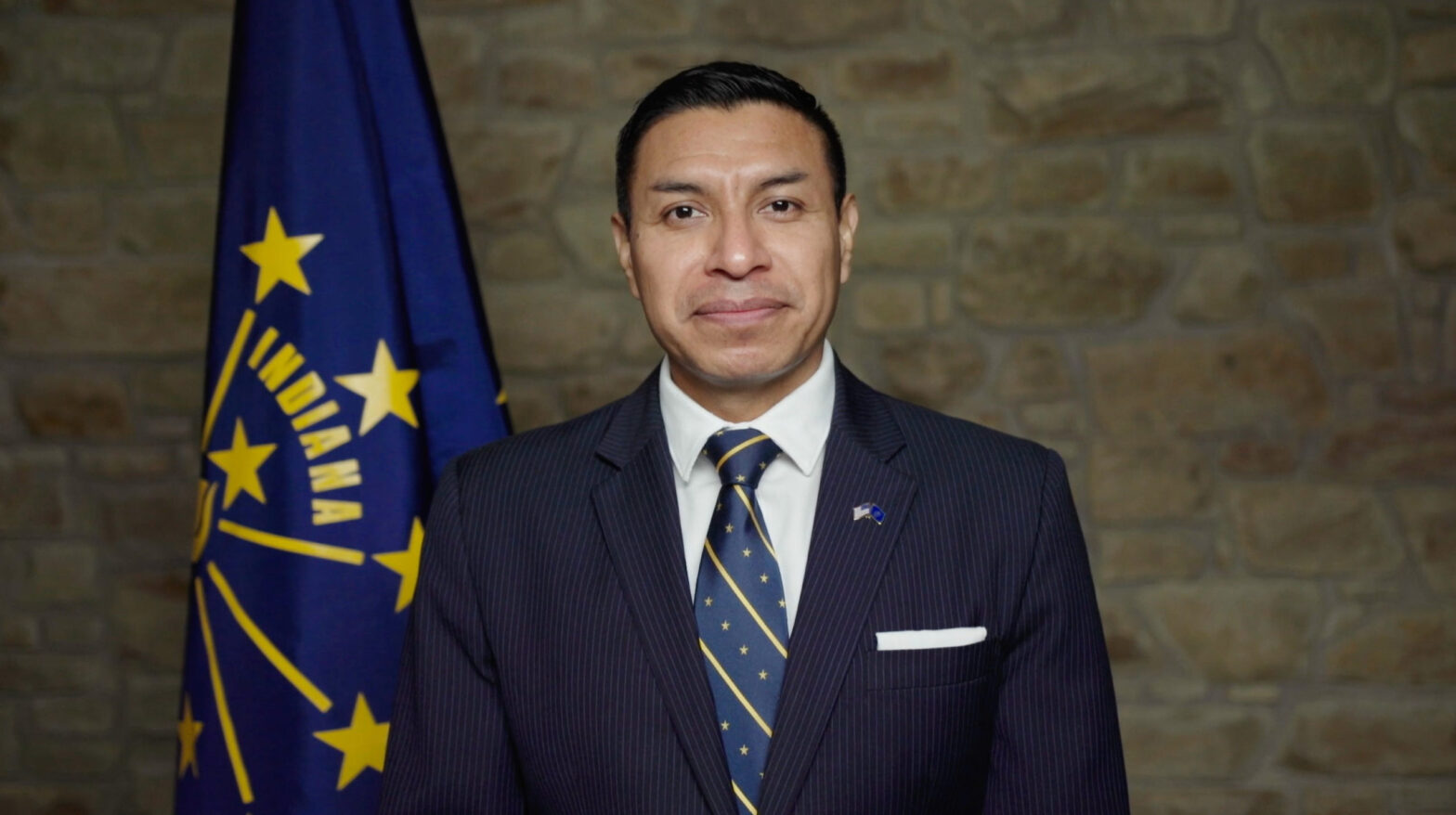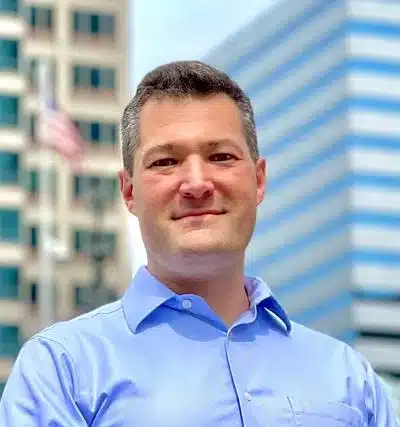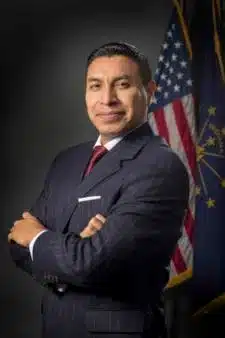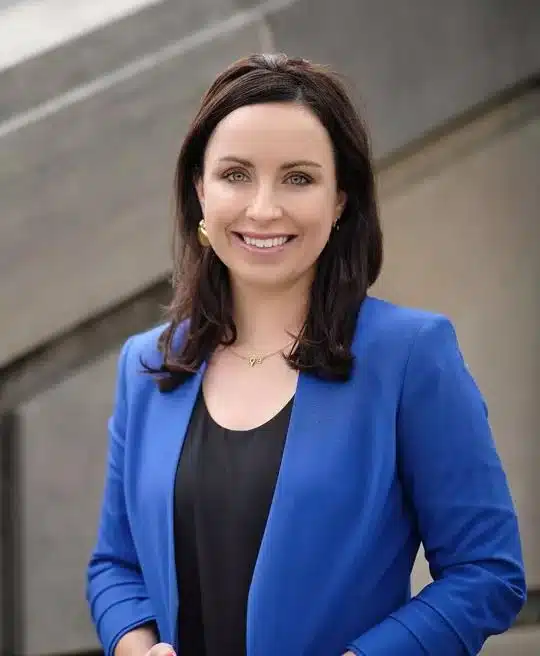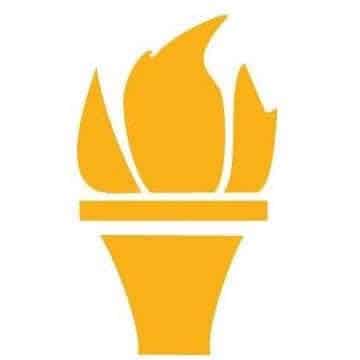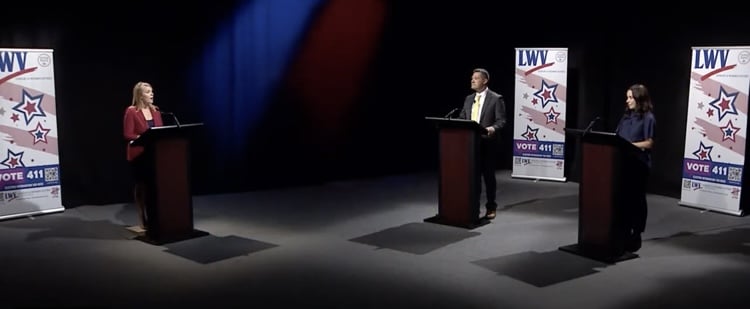The chair reserved for Republican candidate Diego Morales sat empty at an Election Law Forum featuring the candidates for Indiana secretary of state Tuesday.
The Asian Pacific American Bar Association of Indiana hosted the forum, with APABA-IN president G. Michael Witte (above, left) moderating the exchange between Democratic candidate Destiny Wells (center) and Libertarian candidate Jeff Maurer (right).
Secretary of state and election laws
Both candidates gave similar answers when asked what the role of the secretary of state is in regard to election laws.
Maurer described it as a “two-fold mission”: “The first is to advise, recommend, champion improvements or changes to the law, and the second is, of course, to enforce it and to execute it.”
“And also keep in mind that the secretary of state doesn’t actually run elections—that goes to the county clerks,” Maurer said. “So there’s a balance, an intentional balance of power meant to work with counties as a decentralized function, to choose the experience—the voting experience—that is best for their needs.”
“I want to add that as the secretary of state, there is also a lot of responsibility in interfacing with the public and informing the public, educating the public,” Wells said in response to the question. “Something that we’re seeing, trends all across the United States, is a bit of a disinformation campaign against elections.”
Wells, following up her opponent’s response, said, “Jeff gave a very great technical answer as to the duties and responsibilities of that office.”
Priorities as secretary of state
To answer the question of what she would prioritize if in office, Wells cited two statistics.
In voter turnout for 2020, Indiana was 46th. (This comes from the 2021 Indiana Civic Health Index.)
And Indiana finished last in a ranking on campaign finance transparency.
Wells said to address the two issues, she would work to increase civic engagement and make where money is going in terms of campaigns more visible to the public.
For Maurer, the “[s]hort answer is receipts and audits,” he said.
“By my metrics, a successful election is one in which the loser accepts the outcome, not because they liked the result but because they trust the process,” said Maurer.
He wants voters to receive a receipt with a ballot number and code after voting that would allow them to follow their ballot where it goes—as if it were a package traveling from a warehouse to its destination.
The receipt would not include a name, and voters would be unable to see who they voted for.
Maurer said the current auditing system is underwhelming, wanting instead an outside group to perform audits on all 92 counties before the results are certified.
Voter identification
Indiana is one of eight states with “strict photo ID” laws, according to the National Conference of State Legislatures.
The NCSL describes Indiana statute as, “If ID is not presented, the voter votes on a provisional ballot and must return within six days to show an ID or sign an affidavit swearing to indigence or a religious objection.”
Wells is not in favor of current voter ID laws, saying the more requirements there are for voting, the more disparate the impacts will be on certain groups of voters.
Maurer disagreed, likening needing an ID to vote to needing one to drive. He said one can drive on private property without a license, but once on the public road, a license becomes required.
“We cannot give up the responsibility component of liberty,” Maurer said. “With liberty comes responsibility.”
The empty chair
Morales has avoided making appearances with his competitors, saying he will not participate in debates, and this event was no different.
While his name was largely avoided during the forum, he was referenced by both candidates.
At one point, Maurer brought up that Morales described himself as “MAGA” and “an America-first candidate” in an interview with Steve Bannon.
Wells said Morales is in favor of cutting early voting to 14 days—while Morales said this before winning the Republican nomination, he has said he is in favor of keeping it at 28 days multiple times since—and limiting the number of exceptions for absentee voting.
Because Wells did not use Morales’ name when saying a secretary of state candidate supports the two proposals, Maurer jumped in to clarify she was not referring to him.
The Morales campaign did not answer a request for comment regarding his not attending; however, his social account tweeted in the middle of the forum a photo of Morales with a former congressman. It read, “While delivering yard signs in Clark County today, it was good to visit with my mentor, former Congressman Mike Sodrel in Jefferrsonville (sic), Indiana! I appreciate Mike’s friendship.”

